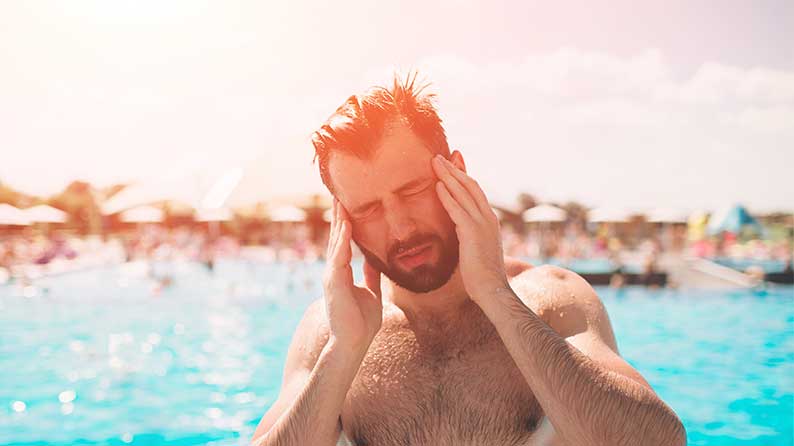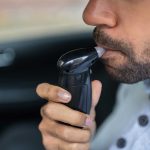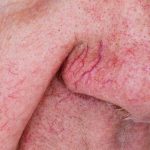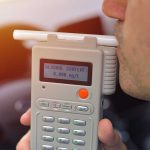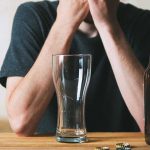From barbecues to beach days and boating trips, summer brings a number of opportunities to relax with a cold beer. Unfortunately, drinking alcohol in warm weather poses serious risks. Here’s why you should reach for non-alcoholic beverages when it’s hot outside.
The Risks Of Drinking Alcohol In The Summer Heat
On a summer day, the hot sun and high temperatures can leave you dehydrated and overheated. Alcohol makes you more vulnerable to these effects for three main reasons:
Alcohol Increases Urination
Alcohol is a diuretic. That means it makes you urinate more often. More specifically, it decreases your body’s production of a hormone called vasopressin.
This hormone, which is also called antidiuretic hormone (ADH), helps your kidneys hold on to water. When alcohol reduces the hormone, your kidneys release more water than usual, which boosts your urine output. The resulting fluid loss can cause dehydration.
Alcohol Increases Body Temperature
When you drink alcohol, your blood vessels expand, which increases blood flow to the surface of your skin. This raises your body temperature.
To cool down, your body will produce sweat. Like urinating, sweating releases water from your body. In hot weather, this fluid loss can lead to dehydration and overheating.
Alcohol Can Cause Vomiting
Alcohol can make you nauseous, especially if you drink a lot. That’s because alcohol is a toxin.
When you consume a large amount of alcohol, your body may try to remove these toxins through vomiting. As with urinating and sweating, vomiting causes fluid loss that can be dangerous on hot days.
Alcohol & Dehydration
Dehydration is a condition that occurs when your body loses more fluids than it takes in. Common symptoms include:
- dry mouth
- dry skin
- increased thirst
- headache
- drowsiness
- dizziness
If you think you might be dehydrated, drink plenty of water. You can also have some sports drinks. If your symptoms persist, or if you experience severe symptoms like rapid heart rate or fainting, seek medical help right away. A doctor can treat your dehydration with intravenous (IV) fluids.
When left untreated, dehydration can have life-threatening complications, including seizures, kidney failure, and loss of consciousness.
The condition can also worsen symptoms of alcohol intoxication, such as confusion, impaired coordination, and lowered inhibitions. This increases your risk of alcohol-related accidents such as falls, drownings, and motor vehicle crashes.
What Is Overheating?
Overheating, also called heat-related illness, is a condition that occurs when your body temperature rises to a dangerous degree. There are two main types of overheating: heat exhaustion and heat stroke.
What Is Heat Exhaustion?
Heat exhaustion occurs when your body becomes unable to cool down through sweating. Common symptoms include:
- muscle cramps
- muscle weakness
- faster breathing
- nausea and vomiting
- tiredness
- dizziness
- fainting
If you experience these symptoms, move to a cool, air-conditioned area, remove tight or unnecessary clothing, and drink lots of water. You can further cool down by taking a cold shower or applying cold compresses (such as ice packs or cool, wet washcloths).
When you take these steps, your symptoms should subside within an hour. If they don’t, or if you develop additional symptoms, you may be experiencing heat stroke.
What Is Heat Stroke?
Heat stroke is a more serious heat-related illness than heat exhaustion. It requires immediate medical attention. Common symptoms include:
- a body temperature of 104 F (40 C) or higher
- dry skin
- headache
- dizziness
- nausea and vomiting
- rapid heart rate
- confusion
- hallucinations (seeing, hearing, or feeling things that aren’t there)
- seizures
- loss of consciousness
If you or someone you know experiences these symptoms, call 911 right away. Move the person to a cool, air-conditioned area, remove unnecessary clothing, and take additional steps to cool them down. For example, you could apply cold compresses, spray them with a garden hose, or cover them with cool, damp sheets.
In most cases, you should not give fluids to a person experiencing heat stroke. That’s because most people with the condition cannot safely drink due to confusion or loss of consciousness.
Like severe dehydration, heat stroke can be treated with intravenous (IV) fluids. When left untreated, the condition can cause brain damage, organ failure, and death.
How To Drink Safely In The Summer
The best way to avoid the above risks is to not drink alcohol on hot days. If you do choose to drink, carry a water bottle with you. Drinking water alongside alcohol can help you stay hydrated and cool.
Also, remember to drink in moderation. According to the National Institute on Alcohol Abuse and Alcoholism (NIAAA), women should have no more than one drink per day, and men should have no more than two drinks per day.
A standard drink contains about 14 grams of pure alcohol, which is found in 12 ounces of regular beer, 5 ounces of wine, and 1.5 ounces of liquor.
If you feel unable to drink in moderation, you may be struggling with alcohol use disorder (also called alcohol addiction). This disease requires professional treatment.
To learn about treatment options, please contact Northeast Addictions Treatment Center. We offer mental health counseling, medication-assisted treatment, and other evidence-based services to help you or your loved one thrive.
Keep Reading:
- Dangers Of Daily Drinking
- What Is Wet Brain?
- Side Effects Of Alcohol
- Alcohol Addiction Treatment
- How Long Is Alcohol In Your System?
- Is Drinking Alone Bad?
Sources:
National Institute on Alcohol Abuse and Alcoholism — Drinking Levels Defined
University of Alabama at Birmingham — The risk of mixing alcohol and Alabama summer heat
National Library of Medicine: MedlinePlus — Dehydration
National Library of Medicine: MedlinePlus — Heat emergencies

